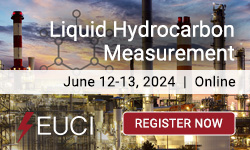Other agenda topics include, but are not limited to:
- Metering principles, types, standards, and technologies
- Insight into equipment calibration, maintenance, and verification
- Measurement life cycle and real-world challenges in design, construction, commissioning, audits, and dispute resolution
- Back-office systems and business processes
This course provides a holistic and practical approach to mastering the complexities of liquid hydrocarbon measurement. Upon completion, attendees should feel comfortable holding in-depth discussions with colleagues regarding measurement and be able to apply this knowledge to their day-to-day projects.
Learning Outcomes
- Review the fundamentals and drivers of liquid hydrocarbon measurement, including the value chain, impact of errors, uncertainties, and disputes on commercial outcomes
- Explore the composition of hydrocarbon liquids, including common types and physical characteristics
- Analyze the business, operational, regulatory, and industry drivers influencing fluid measurement
- Gain insights into the special properties of crude oils, contaminants, and factors affecting fluid quality
- Examine various flow meter technologies, including head type, turbine, positive displacement, ultrasonic, and Coriolis force mass flow meters
- Gain hands-on insights into equipment calibration, maintenance, and verification
- Evaluate the milestone events and processes in the life cycle, including design, construction, commissioning, audits, and dispute resolution
- Explore on-site and off-site analytical methods and the principles behind them
- Discuss data collection, validation, storage, and retrieval systems and explore measurement data analysis, integration with business processes, and field operations






